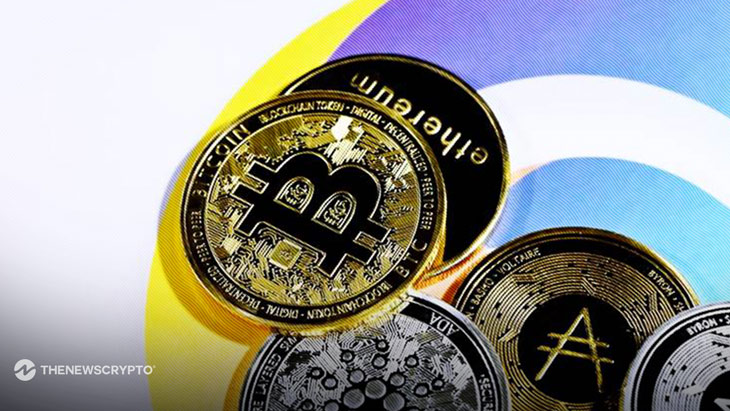Have you ever wondered how blockchain technology is changing the gaming business? By utilizing cryptocurrencies and blockchain-powered networks, these games present inventive methods for obtaining, safeguarding, and trading in-game goods.
We’ll examine the distinctive qualities, monetary structures, and most recent technology developments fueling this revolution in gaming.
Crypto Gaming: A Novel Way of Doing Things
Introducing cryptocurrency games, including crypto pokies, has changed the gaming industry.
Blockchain games feature new economic models, more player control, decentralized and secure rewards, and immersive virtual environments—all of which set them apart from traditional games.
Open, transparent, decentralized platforms like CSDB.gg best represent this new ecosystem.
Crypto games like crypto pokies and other play-to-earn let users earn, trade, and spend virtual currencies for in-game goods and services, blending traditional gaming elements with cryptocurrency.
Blockchain technology reduces fraud by ensuring safe transactions. With NFTs, players can enhance their experiences and explore expansive metaverses.
These developments are revolutionizing gaming by enabling secure trading and ownership of digital assets and offering new ways to engage within the games.
Using Blockchain in Games
Blockchain enhances security, transparency, and trust in crypto games by recording all transactions on a decentralized network.
This massive ledger ensures no one can cheat, as every transaction is publicly visible for validation.
This transparency makes games more reliable for both players and developers. Players have clear evidence of their actions within the game economy, preventing disputes over fairness.
Smart contracts are crucial in blockchain gaming. They enable trusted, automatic transactions without human oversight and create a secure and equitable environment.
Games using blockchain preserve significant data and smart contract processes, ensuring longevity despite current economic structure and gameplay challenges. This technology signals a future of fully autonomous, equitable game economies.
Play-to-Earn Models: Redefining Player Engagement
With the emergence of Play-to-Earn (P2E) models, the gaming industry is undergoing a profound transformation that is changing player engagement.
In contrast to traditional gaming, wherein investments have no tangible returns, Player-to-Player (P2E) gaming enables players to earn tokens convertible into bitcoin. This modification reinterprets the role and worth of gaming.
In pay-to-play games, users can obtain real-world tokens by beating opponents and finishing quests, levels, and challenges.
These tokens provide concrete incentives by being exchanged for fiat money on cryptocurrency exchanges.
Through blockchain technology, NFTs are transforming digital ownership for gamers. With NFTs, players may now manage, exchange, and profit from virtual goods inside and outside the game community.
This invention allows players to make money while playing their preferred games.
The Impact of Incentives on Extended Playtime in NFT Games
Virtual item rewards intensify commitment to playing, resulting in more fun and encouraging game interaction and teamwork. They make it possible to get real money from activities that have no value.
Thanks to their connection with actual cash, economic rewards and achievements have a combined effect in the virtual world.
Assistant to shorten the content: Resultant NFTs own digital things by gamers; compensation leads to more gameplay fun interplay. Making money out of in-game stuff energizes playing games even more.
An array of motives—such as an object’s rarity, the maker’s renown, and general demand—can sway the value of a game’s NFT-based item.
This shifts the focus from trading to pricing virtual collectibles, often involving real money within games. It has led to changes in players’ views on property rights while intensifying participation and inventiveness in game worlds.
Players feel more connected when they own virtual land or items, creating emotional ties that lead to unprecedented loyalty among fans. The commencement of this novel kind of ownership opens up numerous fruitful possibilities that are soon to be realized.
Getting Real With Virtual Objects
GameFi systems are built on incentives. Players earn currencies that are built on economically sound grounds.
This allows gamers to buy and sell among themselves without developer control, making for unhampered gameplay.
Game developers can get money from this in the following ways:
- They receive payment each time a digital thing they made is sold again.
- They can give players cash by making the games fun and encouraging them to keep playing.
- They develop games that use either one kind of token or cryptocurrency and NFT tokens to reward players with financial rewards.
Just as in real-world economic systems, these virtual economies are set up on the one hand by the individual strategies of every player and by the developers on the other.
Players can earn crypto and NFTs by winning over opponents, progressing to higher game levels, etc.
Once decentralized finance (GameFi) is combined with traditional gaming, playing the game becomes yield farming.
Crypto gaming is used to strengthen the bond between videos and real money in games. This bond is growing by linking games more closely to one another and actual financial systems.
Crypto gaming is about more than just features; it is about the gaming industry’s intrinsic nature, propelling growth and acceptance to a broader audience.
Problems with Using Crypto in Games
Despite the advantages and opportunities provided by using crypto, there are some things that could be improved when it comes to players being ready or willing to use it.
Blockchain is not currently capable of carrying out very many transactions swiftly, so on occasion, it is slow or more expensive, making the games unplayable and reducing the number of people interested in playing such games.
Crypto incorporated into games is under close watch by the government. Regulators are confused about the worldwide foundations of virtual money, taxation, plus guarding gamers.
All this confusion endangers both users and developers. Distinct rules will make money illegal acts rare and keep kids away from games.
Set rules to protect against illegal activities and clarify who is allowed to participate. Regulators must monitor new tech to keep up with Virtual money and blockchain. This will maintain innovation and trust among players, thus boosting crypto games.
Solving these challenges will mean the wide acceptance of crypto games. Importantly, these solutions should balance innovation and obeying the rules. The safety of players must always remain a top priority.








